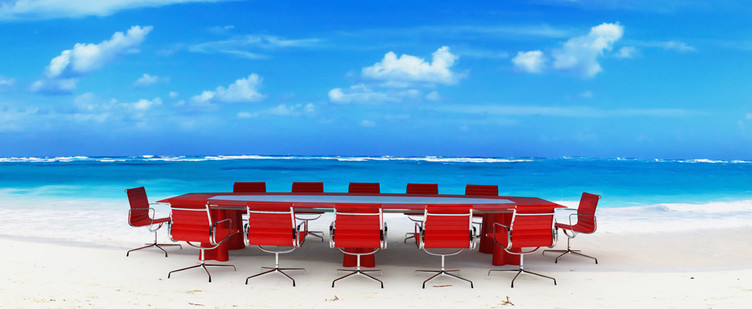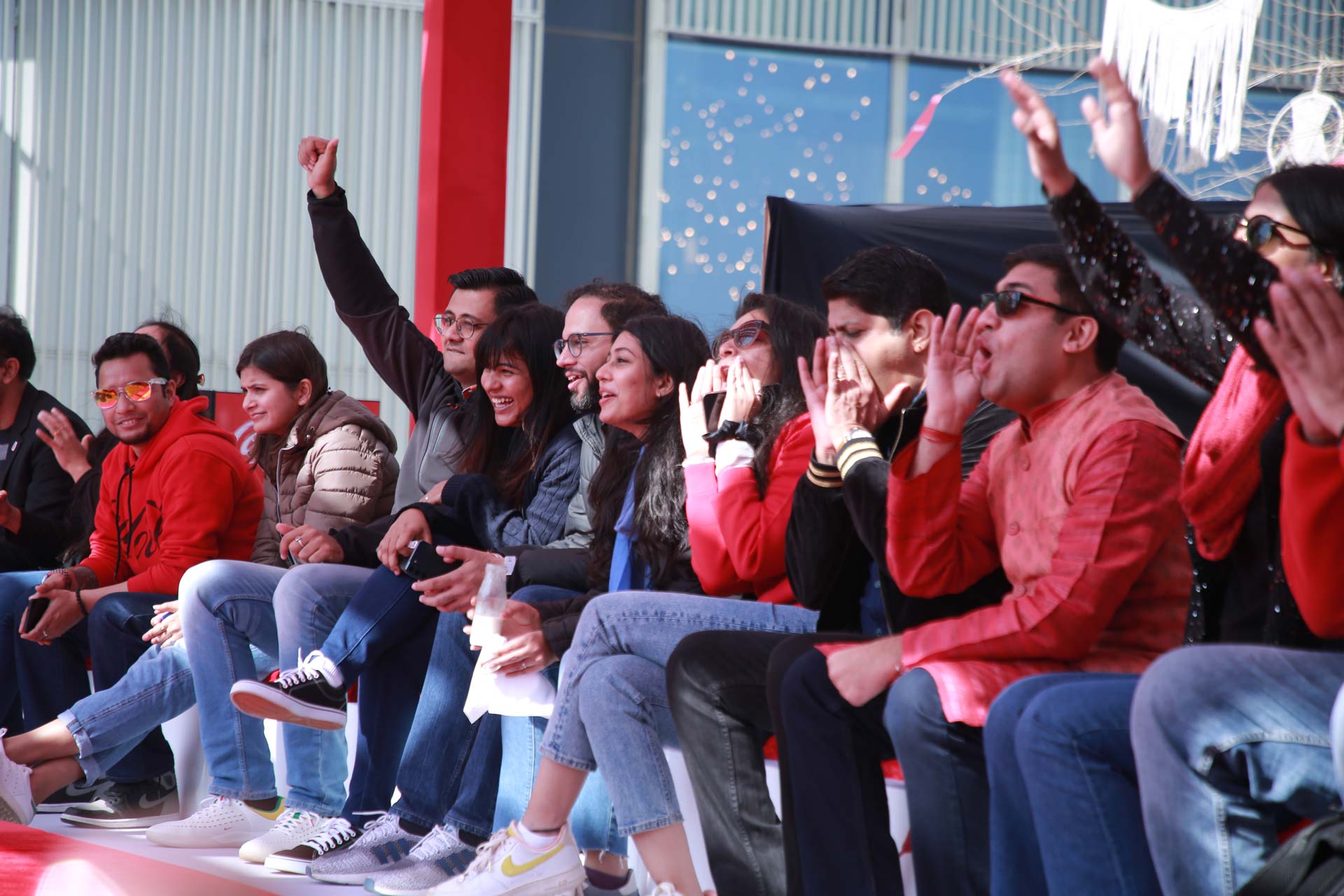Are you planning an offsite for your leadership team? Are you looking to deliver that ‘wow factor’? Anxious since it is the leaders and their feedback is critical? If your answer to these questions is yes then reading this article will do you good.
First, let me build a little background about my own self and the world of corporate offsites. I am passionate about learning & training in all formats and I have almost two decades of experience in designing and facilitating offsite experiences for clients from varied industries. When it comes to leadership offsites(s), I have seen the ‘ask’ in case of a handful of clients undergo a sea change over the years but I am afraid that majority of the client briefs and expectations have not changed much from what they were two decade ago.
Let’s just say that the world of learning is revolutionizing every year while the world of offsite training is just about evolving, if at all!
It is time that you give your leaders and offsite formats the much needed freshness and winning edge. Following is a 5 point checklist that I have put together that will help you plan a leadership offsite that will truly create durable positive impact relevant to the new-age leaders:
I. Go Goa Gone!
You know your leaders end-up covering the best of national & international destinations multiple times over for business as well as for family vacations. Think beyond the usual suspects like Goa, Corbett, Lonavla and Bangkok or for that matter London, Paris or New York. My fondest memories of France are not from Paris or Cannes but from Annecy & Juan Les Pins. The destination should be fresh and a learning experience by itself.

Offbeat Destination – Bush Camping at Masai Mara
Choose destinations that have history & culture and allow you to interact with nature rather than bind you in brick and mortar. On a budget think mountain villages in Uttarakhand; on a slightly higher budget think beach towns in Sri Lanka or small nestled away properties in Bhutan. On a luxurious budget think Yosemite Park (USA), Bush Camping in Masai Mara or Dubrovnik (Croatia). The list of virgin destinations is endless as long as you are willing to experiment and you want to tap into your spirit of adventure.
II. The Last Resort!
The last thing you want is a cookie cutter, large format and touristy resort with an amoeba shaped swimming-pool throbbing with enthusiastic tourists. Offsite is an opportunity where the leadership team gets time to bond, brainstorm and realign. In order for the typically high-strung leaders to find that state of mindfulness requires a tranquil and closer to nature kind of setting. Basically the bright future of your organization has a lot to do with the property you choose for your offsite, so please choose right. No pressure though 😉

Choose a boutique property – Chateau de Candie, Chambery, France
Considering that generally leadership teams range anything between 5-30 folks, it is best to choose high-rated boutique properties away from the commercial hustle bustle where you can interact with nature and wilderness. Think of places like Wildflower Hall (Kufri), coffee estates in Coorg, beach villas in Nusa Dua (Bali), wilderness estates in Tanzania, offsite on a yacht on the French Riviera.. You get the drift.
III. Facilitate Awesomeness! A few years ago, one of our FMCG clients brought us in to train the leadership team to be better crisis managers at their offsite in Holland. We did not create an esoteric module delivered through slides in a classroom setting. We brought the learning(s) to life in a scavenger hunt on a cycling tour from Rotterdam to Delft. Cool right?

Cycling through the Dutch countryside
On the contrary, at most offsites the training /team-building part of the itinerary is what most participants survive through while they remind themselves of better times to come – party in the evening, shopping the next day or timeout for R&R. Not so cool right?
Most offsite decisions and budgets focus a lot on luxury,touristy experiences & entertainment and not so much on interacting with culture, each-other, learning and collaboration. The ‘learning’ aspect garbed in the name of ‘team-building’ is generally plugged-in as an afterthought. Event / travel agency handling the event brings in a trainer / facilitator who mostly turns out to be a retired professor, motivational speaker or worse still an emcee / party games host. Nothing wrong with that as long as you are alright with a GP or an anesthetist performing brain surgery on you!

Choose your facilitator wisely!
Next time bring in a professional training company that specializes in building & facilitating offsite learning experiences. Focus more on the long-lasting individual and organizational takeaways and benefits of an offsite and not the material memorabilia & experience that are doled-out to the participants. For example: In Netherlands on an offsite, what would you prefer for you leader – a picture with the tulips at the Keukenhof Gardens or the same picture taken while the leader is participating in a role-play based on the ‘Tulip Mania’ with subtle business learnings that can be taken back to his / her work desk? I leave the obvious choice to you 🙂 Aim for activities, with subtle briefs & debriefs coupled with crisp & articulate messages from an experienced & engaging facilitator. Facilitator and facilitation design will make all the difference.
IV. I Object!
Objective & expectation setting for the offsite is the make or break of your offsite. Most of our first time clients say almost the same statement when they give us the first call – “we are doing an offsite and we want you to suggest team-building activities”. On being coaxed to better define the objectives, most clients list-out all or a combination of the following: breaking down silos, collaboration, team spirit, motivation, openness, mutual trust & respect.

There is more to offsite learning than team-building!
We over the years in offsite formats have handled learning objectives ranging from crisis management, change management, personal effectiveness, organizational culture, culture of innovation, conflict resolution, vision alignment, diversity & inclusiveness, project management, interpersonal skills to stress management and collaborative decision making.
Think beyond team building but yes do not try and be over ambitious with objective setting, idea should be to focus on an objective or a set of aligned objectives.
V. Entertrain (entertain + train) them!
We are wary of clients who say “so much fees for only one / two activities, at least do three or four activities in one day”. No thank you! I much rather that we do one learning oriented activity in the whole offsite but ensure that it delivers the learning objective, sparks the much needed dialogue or curiosity or switches on that latent energy source. Also, make a conscious effort to move away from sit-down sessions in an offsite. No point in traveling 100s /1000s of miles from office to again sit within the confines of four walls. Even when you plan outdoor activities try and steer away from the run-of-the-mill team-building games. Get your facilitator to stimulate & simulate scenarios that utilize the locales and culture of the destination for your offsite.

A LOST themed offsite in the wilderness (Coorg)
These are some of the offsite experiences we have had the opportunity to create for our clients:
- Takeover the operations of a real hotel for 48 hours (Sentosa, Singapore)
- Great Race styled day long Treasure Hunt through Fort Cochin
- Lost styled day long scavenger hunt in the wilderness in Coorg
- The Apprentice & Master Chef inspired half-day cook-off in Bangkok
- Survivor themed two-day survival game in the wilderness of Napa Valley
- Da Vinci Code themed code cracking whodunit through Goa
The order in which the above checklist should ideally work is that first things first cull-out the objectives and messages that you want to drive through the offsite. Fix the dates, destination and venue (ideally in consultation with your facilitation partner). Share the finalized program details with the facilitation team and provide comprehensive input to them on the offsite learning objectives. Aim to keep the itinerary crisp, focused and not stifling for the participants. Try and build as much of the local flavour into the organized learning experience as possible – history, sightseeing, food, nature and such can be woven into the overall learning experience. And most importantly, give us a shout in case you think we can add value 🙂


















